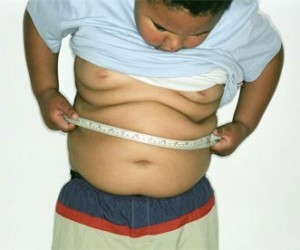Childhood Obesity - Diagnosis and Treatment

Childhood obesity is a serious medical condition that affects children and adolescents. It occurs when a child is well above the normal weight for his or her age and height.Too little activity and too many calories from food and drinks — are the main contributors to childhood obesity. But genetic and hormonal factors may play a role as well.
Risk Factors
- Lack of exercise.
- Family factors.
- Psychological factors.
- Socioeconomic factors.
Complications
- type 2 diabetes
- high blood pressure and elevated blood cholesterol
- liver disease
- bone and joint problems
- respiratory problems such as asthma
- sleep disorders such as difficulty breathing while asleep (sleep apnea)
- earlier than normal puberty or menstruation
- eating disorders such as anorexia or bulimia
- skin infections due to moisture from sweat being trapped in skin folds
- fatigue
Overweight or obesity in childhood can also result in serious psychological difficulties.
- are more likely to be teased and bullied
- are more likely to bully others
- may have poor self-esteem and may feel socially isolated
- may be at increased risk for depression
- may have poorer social skills
- may have high stress and anxiety
- may have behavior and/or learning problems as a result of psychological difficulties related to childhood obesity
Unfortunately most obese children and youth do not outgrow their weight problem. In fact, most people continue to gain weight as they age. Obesity in adulthood leads to
- high blood pressure
- strokes
- certain types of cancer (endometrial, breast and colon among others)
- heart disease
- liver disease
- type 2 diabetes
- dementia
Diagnosis
- BMI-for-age between 85th and 94th percentiles — overweight
- BMI-for-age 95th percentile or above — obesity
Blood tests
Your child’s doctor may order blood tests if he or she finds that your child is obese. These tests may include:
- A cholesterol test
- A blood sugar test
- Other blood tests to check for hormone imbalances
Treatment
- Weight maintenance program
- Regular physical activity
- Limit sedentary life style like TV and Video games
- Healthy diet avoid junk food
- Find activities which your child likes to do
Check out these links for relevant information: Obesity risk factor, Diet Nutrition

Progressive Care Physiotherapy
Progressive Care Physiotherapy Management is the best service in the physiotherapy industry. It is known for providing the best service and cutting-edge technology to help speed up recovery, while also being able to offer various treatment options that are tailored to your specific needs.
For More details call us on 9618906780
